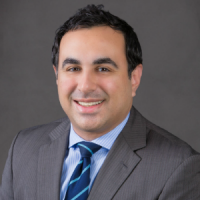I would like to do an EB-5 investment if it can help my wife and our child. My wife and daughter went to the United States on a tourist visa and stayed (nine years now). My daughter was there from age 8-16 and she then did DACA (three years ago). If I do EB-5, will it help my daughter or my wife? I have come in and out of the United States, but have never violated my visa.
Answers

James Yang
Immigration Attorneys DirectoryObtaining a green card though EB-5 does not immediately help your family who has overstayed in the United States. However, there may be other remedies available to them. Please consult an immigration attorney on this issue.

Charles H Kuck
Immigration Attorneys DirectoryYour spouse and child have no opportunity to use the derivative feature directly for any immigration benefit. However, if you use the EB-5 to immigrate, than naturalize five years later, you will be able to adjust the status of your spouse, and possibly your child, if your child is under 21 at that time.

Barbara Suri
Immigration Attorneys DirectoryUnder the circumstances you stated, you wife and daughter have overstayed their visas for more than one year and will not be able to adjust status in the United States. Upon visa processing overseas, they will need to show that they have resided outside the United States for at least 10 years before they will be granted another visa.

Bernard P Wolfsdorf
Immigration Attorneys DirectoryIf your daughter accrued unlawful presence - meaning she was without status for more than 180 days after age 18, she may have bar issues. When someone who is out of status for more than 180 days after they entered on a tourist visa leaves, they trigger a three-year bar to re-admission. This can sometimes be waived, but needs a hardship waiver. You can almost certainly benefit, and your wife and child might be eligible for waivers, but they need experienced counsel who can evaluate the inadmissibility or bar issues. You may have issues also as you may not have disclosed that your family was here without status.

Michael A Harris, Esq
Immigration Attorneys DirectoryThe EB-5 visa would not grant you a unique benefit that would necessarily help your spouse and children. If your spouse and child are the immediate relatives of a permanent resident who would suffer an extreme form of hardship without them in the United States, then they could seek a Waiver of Inadmissibility for the overstay. If you are successful in obtaining permanent residence - which the EB-5 program can grant you - then your wife and child could seek a waiver. Whether a waiver is approvable is a question that you should discuss with competent immigration counsel. Alternatively, spouses and children (under 21 years of age) of U.S. citizens who were lawfully admitted and inspected into the United States can have their overstays forgiven. But with that in mind, it would be five years after being granted residence before a resident can apply for citizenship.

Richard A Gump, Jr
Immigration Attorneys DirectoryEach applicant for adjustment of status (green card application in the United States) or immigrant visa (applied for at a U.S. consulate outside the United States) must demonstrate eligibility for the green card. If your wife and daughter are not eligible because of immigration violations, the approval of the EB-5 will not help them. Your wife and daughter may be eligible for waivers, but this is fact specific and does not relate to the EB-5.

John J Downey
Immigration Attorneys DirectoryProbably not at this time. DACA is still up in the air and it is a deferred action that can be withdrawn at any time. Any overstay is problematic.

Charles Foster
Immigration Attorneys DirectoryYes, it may potentially help your daughter. You need to consult with experienced immigration counsel. The fact that she has overstayed as a minor does not now impact her, but it also means that she must depart the United States to go to her final interview at the appropriate American consulate. If at the time of the interview she has turned 18 and has overstayed more than six months after her 18th birthday, she would become subject to a three-year bar. If she has overstayed for more than 12 months, she is subject to a 10-year bar; thus, she should depart the United States by her 18th birthday in order to preserve her eligibility.

A Olusanjo Omoniyi
Immigration Attorneys DirectoryBased on your facts, both you and your daughter are likely to be granted green cards through the EB-5 program. However, with regards to your wife who has been out of status for more than a year, she is likely not going to be granted unless a ground for exemption can be found. Advisably, consult an immigration attorney on this before proceeding further.

Raymond Lahoud
Immigration Attorneys DirectoryEB-5 will not waive the inadmissibility ground for your wife. As for your daughter, she did not begin accruing unlawful presence days until she turned or turns 18. So, it could help your daughter adjust status. Your wife will have a problem, unless she qualifies for a waiver, which would be based on certain qualified U.S. citizen/lawful permanent resident relatives. You could always sponsor your wife once you become a U.S. citizen (adjust her status).
DISCLAIMER: the information found on this website is intended to be general information; it is not legal or financial advice. Specific legal or financial advice can only be given by a licensed professional with full knowledge of all the facts and circumstances of your particular situation. You should seek consultation with legal, immigration, and financial experts prior to participating in the EB-5 program. Posting a question on this website does not create an attorney-client relationship. All questions you post will be available to the public: do not include confidential information in your question.






